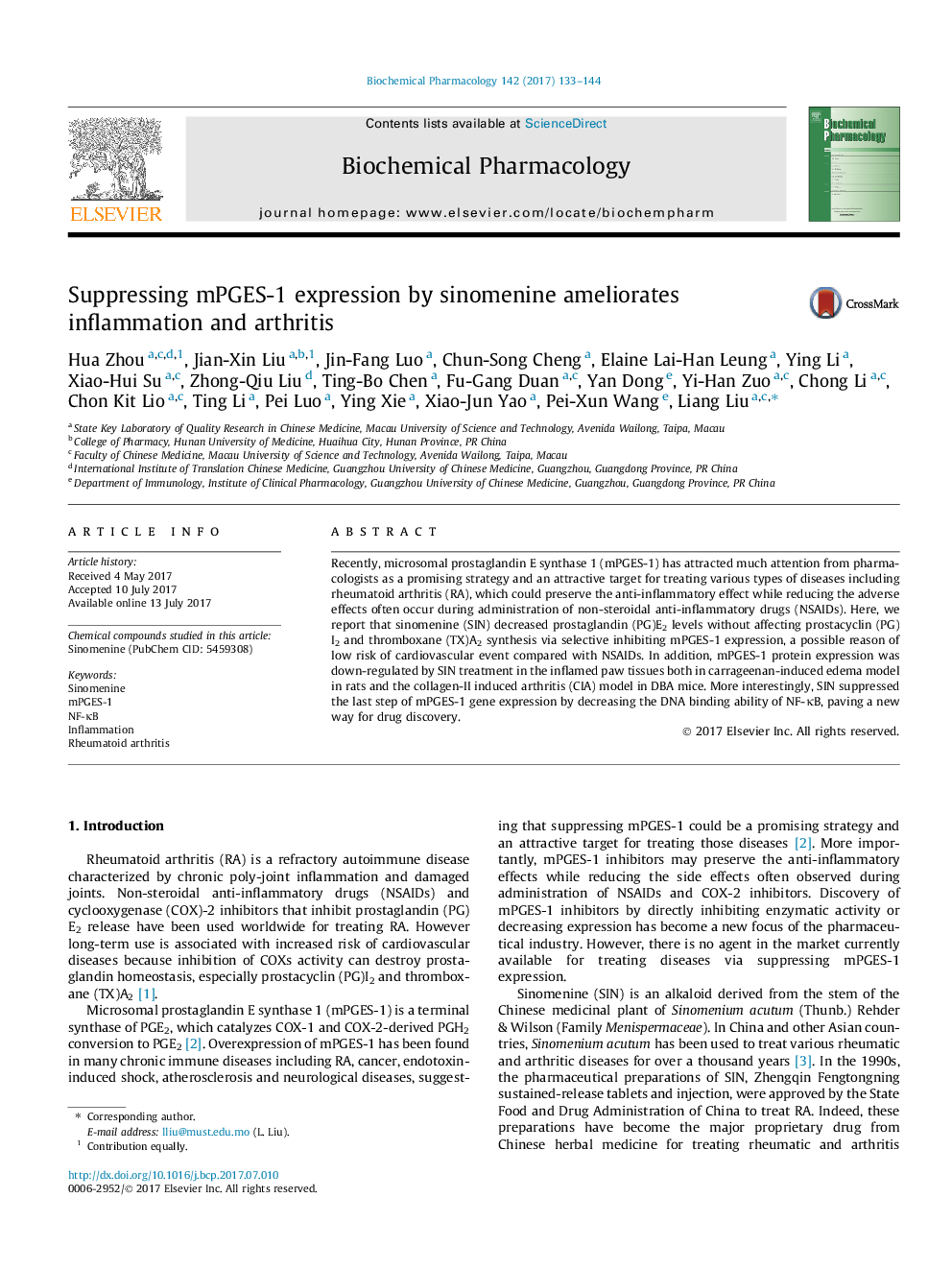| Article ID | Journal | Published Year | Pages | File Type |
|---|---|---|---|---|
| 5551990 | Biochemical Pharmacology | 2017 | 12 Pages |
Recently, microsomal prostaglandin E synthase 1 (mPGES-1) has attracted much attention from pharmacologists as a promising strategy and an attractive target for treating various types of diseases including rheumatoid arthritis (RA), which could preserve the anti-inflammatory effect while reducing the adverse effects often occur during administration of non-steroidal anti-inflammatory drugs (NSAIDs). Here, we report that sinomenine (SIN) decreased prostaglandin (PG)E2 levels without affecting prostacyclin (PG)I2 and thromboxane (TX)A2 synthesis via selective inhibiting mPGES-1 expression, a possible reason of low risk of cardiovascular event compared with NSAIDs. In addition, mPGES-1 protein expression was down-regulated by SIN treatment in the inflamed paw tissues both in carrageenan-induced edema model in rats and the collagen-II induced arthritis (CIA) model in DBA mice. More interestingly, SIN suppressed the last step of mPGES-1 gene expression by decreasing the DNA binding ability of NF-κB, paving a new way for drug discovery.
Graphical abstractDownload high-res image (263KB)Download full-size image
